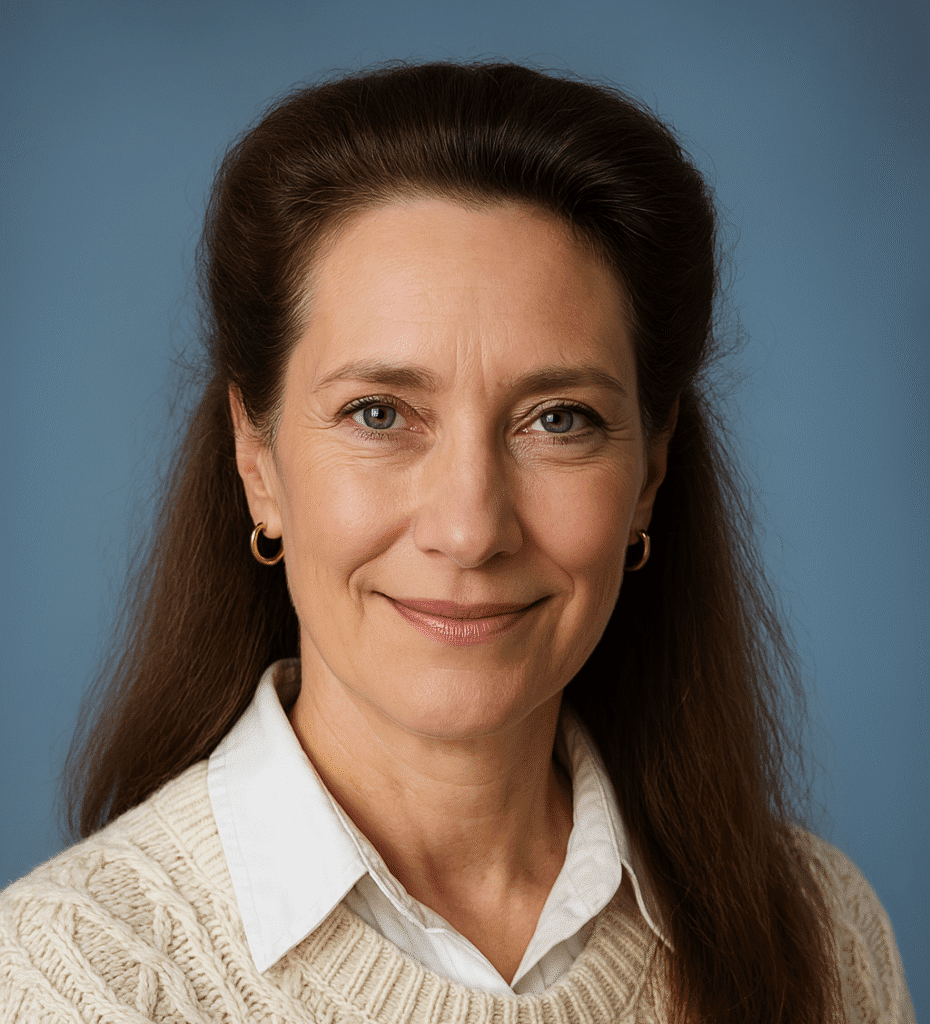How Our Empty Nest Transformed Our Lives (and Left Us With All the Cookies)
“Honey, remember when we used to trip over LEGOs and wonder if we’d ever have a quiet moment to ourselves? “Sarah chuckled, raising an eyebrow at Tom as she sipped her coffee. “Well, here we are. Our very own “empty nest.” Who knew it wouldn’t involve daily weeping into a box load of tissues while wearing our kids’ old hoodies?”
Tom grinned, leaning back in his chair. “You’re right, love. All those books we skimmed, warning us about the ’empty nest syndrome’ – turns out they were a bit… dramatic. I mean, sure, there was that one Tuesday I nearly teared up because I didn’t have to break up a fight over the last cookie, but mostly it’s been less ‘syndrome’ and more ‘symphony of silence.’ And frankly, more cookies for us!”
“Exactly!” Sarah agreed, her eyes twinkling. “It’s like someone hit the ‘fast forward’ button on our lives, and suddenly, we’re not just ‘Mom and Dad’ anymore. We’re… us! Remember ‘us’?” She winked. “Turns out, we still like each other, which is a bonus after twenty-odd years of taxiing kids and refereeing sibling squabbles.”
“Who knew, right?” Tom mused. “Though, I did briefly consider turning their old rooms into a giant walk-in closet for my golf clubs. You shot that down pretty fast.”
“And wisely so,” Sarah laughed. “Because you know as well as I do, as soon as we convert those rooms, one of them will ‘boomerang’ back for a ‘short stay’ that inevitably lasts six months. So, we’ve got to keep a designated landing strip ready. It’s like a reverse Airbnb, only you don’t get paid, and they raid your fridge.”
“True, true,” Tom conceded. “But in the meantime, it’s been nice to rediscover hobbies that don’t involve glitter glue or driving to soccer practice at dawn. And date nights that don’t end with us falling asleep on the couch at 9 PM because we’re utterly exhausted from parenting.”
“Absolutely,” Sarah nodded. “It’s wild how much freedom you suddenly have. More time for us, for ourselves, for actual adult conversations. It’s not always easy – there are moments you miss the chaos, for sure – but mostly it’s about figuring out who we are now that our biggest, most important job description has changed. And hey, at least we don’t have to pretend to know what TikTok is anymore!”
“Small victories,” Tom agreed, raising his coffee cup in a toast. “To the empty nest, love. May it be filled with peace, quiet, and absolutely no glitter.”
Sarah clinked her mug against his. “And plenty of cookies.”
5 FAQs about the Empty Nest Syndrome
1. Q: So, what is the “empty nest” exactly? Is it, like, a disease?
A: Thankfully, no! It’s not a disease, more of a major life stage. The “empty nest” refers to the period in parents’ lives when their children leave home to go to college, start careers, get married, or simply move out to live independently. It’s when the “nest” (your home) becomes “empty” of children, changing the family dynamic significantly. It’s less about a diagnosis and more about a transition – sometimes a smooth one, sometimes a bit bumpy!
2. Q: Will I just cry all the time? Everyone talks about “empty nest syndrome” like it’s the end of the world!
A: It’s totally normal to feel a mix of emotions, and yes, a little sadness or even a few tears are definitely on the menu for most parents. But the idea of a widespread, debilitating “empty nest syndrome” where everyone falls into a deep depression? That’s largely a myth, or at least a highly exaggerated one for many. While some parents do struggle more, particularly if their identity was very wrapped up in parenting, many others experience newfound freedom, joy, and a chance to reconnect with their partners and themselves. Think of it less as the end of the world and more like the beginning of a new chapter – one with fewer laundry piles!
3. Q: What happens to my relationship with my partner? Will we just stare at each other awkwardly over dinner now that the kids aren’t here to distract us?
A: Great question! This is a huge one for many couples. For some, the empty nest is a fantastic opportunity to rediscover each other. You suddenly have more time, energy, and privacy for date nights, shared hobbies, and just plain old conversation without interruption. It can be a second honeymoon phase! However, if your relationship largely revolved around the kids, you might find yourselves needing to put in some effort to reconnect and redefine your shared life. It’s a chance to build a stronger, more intimate bond, but like any good relationship, it takes intention. No awkward staring contests required, unless that’s your thing!
4. Q: My kids are gone, so what do I do now? I feel a bit lost without the daily routine of parenting.
A: This is a really common feeling! For years, your identity and daily schedule were largely dictated by your children’s needs. When they leave, it can feel like a part of you has gone too. But this isn’t a void; it’s an opportunity! Many parents embrace new hobbies, rekindle old passions, pursue career goals they put on hold, volunteer, travel, or focus more on their health and friendships. It’s a chance to redefine yourself not just as a parent, but as an individual with new interests and purposes. Think of it as your turn to be a little bit “selfish” (in the best possible way!).
5. Q: What if my kids “boomerang” back? Is the empty nest ever really empty these days?
A: Ah, the “boomerang kid” phenomenon! You’ve hit on a very real and increasingly common trend. Many young adults do return home after college, a job loss, or just to save money. So, no, for a significant number of parents, the empty nest isn’t always a permanent state. This can be a new adjustment in itself, requiring fresh boundaries and communication as you navigate living with your adult children again. It just means the “empty nest” might be more of a temporary Airbnb with flexible check-out times, rather than a permanent vacancy!
If you have more questions, I have made a list of 10 books that cover the subject in more detail.
10 Book Recommendations
“I don’t like the term empty nesters. I prefer ‘parents of free range adults’.” ~Robin Fox
Ready for some book recommendations on this glorious, occasionally hilarious, empty nest adventure?
“The Empty Nest: 31 Parents Tell the Truth About Relationships, Love, and Freedom After the Kids Fly the Coop” by Karen L. Fingerman – A collection of honest, diverse stories from parents sharing their real experiences with this major life change.
“Beyond the Mommy Years: How to Live Happily Ever After… After the Kids Leave Home” by Carin Rubenstein – Practical advice for rediscovering your identity and finding fulfilment after decades of active parenting.
“When the Nest Empties: Thriving in Your New Life Phase” by Jeanette Lauer and Robert Lauer – A comprehensive guide to reinventing yourself and strengthening your marriage during this transition.
“The Empty Nest Syndrome: How to Cope When Your Children Leave” by Lillian Rubin – A classic that explores the emotional challenges and opportunities that come with children leaving home.
“Letting Go: A Parents’ Guide to Understanding the College Years” by Karen Levin Coburn and Madge Lawrence Treeger – Particularly helpful for parents whose children are in college, offering insight into maintaining connection while fostering independence.
“The Second Half of Marriage: Facing the Eight Challenges of Every Long-Term Marriage” by David and Claudia Arp – Addresses how to reconnect with your spouse and build a stronger relationship after the parenting years.
“Empty Nest, Full Life: Discovering Your New Life After the Kids Leave Home” by Jeanette Lauer and Robert Lauer – Focuses on personal growth, relationship renewal, and finding new purpose.
“Necessary Endings: The Employees, Businesses, and Relationships That All of Us Have to Give Up in Order to Move Forward” by Henry Cloud – While not specifically about empty nest, it’s invaluable for anyone learning to let go and embrace new beginnings.
“The Dance of Intimacy: A Woman’s Guide to Courageous Acts of Change in Key Relationships” by Harriet Lerner – Excellent for understanding how to navigate changing relationships with adult children and rediscover intimacy in marriage.
“A New Season: A Robertson Family Love Story of Brokenness and Redemption” by Al and Lisa Robertson – A memoir that shows how one couple rebuilt their relationship after their children left home, offering hope and practical wisdom.
These books address the emotional, practical, and relational aspects of empty nest syndrome and aim to provide a realistic and diverse perspective on the “empty nest” phase of parenting, moving beyond the traditional stereotype of “empty nest syndrome” as solely a time of sadness and loss. Key themes typically explored include:
- Dispelling the Myth of “Empty Nest Syndrome”: Many parents, contrary to popular belief, do not experience severe depression or a pervasive sense of loss when their children leave home. While some sadness or adjustment is common, it’s often accompanied by other, more positive emotions.
- Newfound Freedom and Opportunities: The empty nest often brings increased freedom for parents to pursue their own interests, hobbies, and career goals that may have been put on hold during intensive child-rearing years.
- Reinvigorated Marital Relationships: With fewer day-to-day parenting demands, many couples find an opportunity to reconnect, strengthen their bond, and rediscover their relationship outside of their roles as parents.
- Evolving Parent-Child Relationships: The relationship with adult children often transforms into a more adult-to-adult dynamic, potentially leading to deeper, more mature, and less conflict-ridden connections. While physical distance might increase, emotional closeness can grow.
- Mixed Emotions and Individual Differences: The experience is highly individual. Some parents may indeed struggle more than others, particularly if their identity was heavily tied to their parenting role or if they had an “over-involved” parenting style. Men, surprisingly, may sometimes experience more difficulty adjusting than women, who may have already anticipated and planned for this transition.
- The “Boomerang Kid” Phenomenon: The reality that many young adults return home after initial independence is also a factor, making the empty nest transition less linear and sometimes temporary. This can present new challenges and adjustments for parents.
- Focus on Personal Growth: The empty nest period can be a time for self-discovery, taking on new challenges, and redefining oneself beyond the parental role.
In the last decade, there have been some prevalent nuances in books about this subject:
Addressing Challenges: While emphasising the positive, most empty nest books don’t shy away from the real challenges parents face, such as feelings of grief, loneliness, loss of purpose, and the complexities of adult children returning home. They aim to provide guidance for these difficulties.
Shift in Perspective: There’s been a significant shift in how the “empty nest” is portrayed. Older literature often focused heavily on “empty nest syndrome” as a purely negative, grief-filled experience. More contemporary books tend to offer a more balanced and nuanced view, highlighting the potential for positive outcomes alongside the challenges.
Common Themes: The themes identified in the summary (newfound freedom, reinvigorated marital relationships, evolving parent-child dynamics, individual differences, personal growth, and the “boomerang kid” phenomenon) are consistently found across many modern empty nest books. They reflect the diverse realities of parents in this stage of life.
Emphasis on Individuality: A key takeaway from many empty nest books is that the experience is highly individual. There’s no single “right” way to feel or react, and these books often aim to validate a range of emotions, from sadness and loss to excitement and liberation.
Practical Advice and Strategies: Many books, even those with personal narratives, also offer practical advice and coping mechanisms for navigating this transition, whether it’s about redefining identity, improving communication with adult children, or rekindling marital intimacy.
Conclusion
So, as Sarah and Tom discovered over their quiet coffees, the empty nest isn’t a sentence; it’s a new chapter. It’s a chance to trade chaos for calm, rediscover that amazing person your partner is, and find out who you are when you’re not juggling playdates and permission slips.
In any case, as Tom wisely noted, the “empty nest” isn’t always perfectly empty, thanks to those charming boomerang kids. But whether your nest is temporarily vacant or sees a returning resident, the underlying truth remains: this is a period of immense change, but also a period of opportunity.
It’s about adapting, embracing the unexpected, and leaning into the quiet moments that allow you to rediscover yourself. The journey of parenting never truly ends, but the empty nest phase offers a unique invitation to redefine what that journey looks like, on your own terms.
The Purpose Pivot Protocol is your rejuvenating and revitalising guide to transforming this “empty” end into a vibrant new beginning. I’ll help you dive deep, realign with your true values, and uncover the exciting new passions and contributions waiting to fill your life with meaning – whether that’s launching a new venture, pursuing a long-dormant dream right here in France, or simply experiencing a profound sense of peace you haven’t felt in years. Don’t just watch the dust bunnies collect; empower yourself with the clarity, confidence, and connection that comes from living a truly purpose-driven life.
Implement the Purpose Pivot Protocol right now – and if you need a bit more support, you can add a coaching session or two to the protocol.

The Purpose Pivot Protocol – drawing inspiration from the Camino de Santiago, this transformative course guides you through a proven framework to recalibrate your authentic purpose and create a meaningful and fulfilling next act. Get immediate access

Firm Foundations for Your Future Protocol – a fast-paced, high-impact, future-focused course that facilitates the construction of identity-shaping stories about your future self so that you can make the changes needed to avoid having to go through big life changes again and again—without needing to process your past in depth and in detail.

Author Bio: Dr Margaretha Montagu – described as a “game changer”, “gifted healer”, “guiding light” and “life-enriching author” – is an experienced medical doctor, a certified NLP practitioner, a medical hypnotherapist, an equine-assisted psychotherapist (EAGALAcertified) and a transformational retreat leader who guides her clients through life transitions – virtually, or with the assistance of her Friesian and Falabella horses, at their home in the southwest of France.

